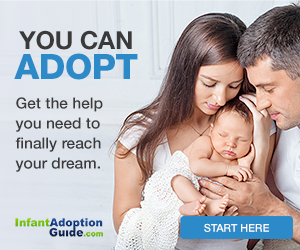Accusations of Unethical Practices Plague Popular Adoption Agency

A mother considering placing her child for adoption might be relieved at the prospect of adoptive parents providing for her financially, paying for health care, gasoline, and even maternity clothing. But, as Shyanne Klupp can attest, such financial perks are sometimes later used against the mother. According to an article by Time, Klupp decided to place her baby through a private agency called Adoption Network Law Center (ANLC). The adoptive parents paid thousands of dollars’ worth of Klupp’s food and other living expenses. When she had doubts about the adoption, though, her ANLC counselor gave her the impression that backing out of the adoption would also mean paying back the adoptive parents’ money. Klupp notes, “They made me feel like, if I backed out, then the adoptive parents were going to come after me for all the money that they had spent.” She was not in a position to pay back the money, so, feeling trapped, she went through with the adoption.
Unfortunately, other birth mothers have found themselves in similar dilemmas with ANLC. Not only that, but many former ANLC employees have since disclosed other unethical and possibly illegal practices. The company was started in 1996 by Allan and Carol Gindi, and according to Time, “In 2006, the Orange County district attorney filed a scathing complaint contending that while operating Adoption Network, the couple had committed 11 violations, including operating as a law firm without an attorney on staff and falsely advertising Carol as having nursing degrees.”
Former employees also report strong pressure to bring in business and say that ANLC gave adoptive parents “inaccurate statistics on how often the company’s attempts to matchmake were successful,” Tik Root reports. Allegations also claim that the company offered discounts for those adopting biracial children and gave overweight adoptive parents contracts that timed out because they were less likely to make an adoption match. According to Time, former ANLC owner Kristin Yellin “says she put an end to the use of the limited agreement, and denies [another allegation] that ANLC ever advised birth mothers to relocate to other states to make an adoption easier.”
While ANLC is not the only agency suspected of improper practices, its questionable operations highlight what many say are the main problems with private adoption. Root asserts that “critics…see the organization as a paradigm of the largely unregulated private-adoption system in the U.S., which has made baby brokering a lucrative business.”
California adoption attorney Celeste Liversidge points to the fact that the number of adoptable children far outweighs the number of prospective adoptive parents in the United States. “It’s a fundamental problem of supply and demand,” she says. The situation creates an ideal environment for private agencies to make a profit. A 2021 report shows that ANLC charged “[prospective parents] more than $25,000 in fees—not including legal costs for finalizing the adoption, birth-mother expenses and other add-ons (like gender specification). The full tab, say former employees, can balloon to more than double that,” notes Root. For reasons like this, advocates for change in the U.S. adoption industry are pushing for private adoption to bend toward nonprofit.
Private agencies are not well regulated because states have different laws governing adoption. California and Nevada, for example, consider birth parents’ expenses paid by adoptive parents as “acts of charity.” As such, they do not need to be paid back. Time reports that “in other states…nothing prohibits adoption entities from trying to obligate birth parents to repay expenses when a match fails.” The wide variety of adoption laws across the U.S. contributes to misconceptions about adoption. As Liversidge notes, “There’s an assumption in this country that adoption is a win-win solution. People don’t understand what’s going on.”

